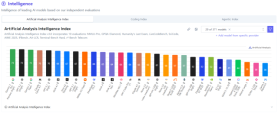
SEOUL, March 21 (AJU PRESS) -- South Korea's largest portal operator Naver has been recognized by the prominent American business news magazine "Fast Company" as the third-most innovative company in the Asia-Pacific region among 606 companies. The business news outlet highlighted "CLOVA X," an artificial intelligence solution that understands and generates human-like conversations in text.
In Fast Company's 2024 ranking of the most innovative Asia-Pacific companies, Naver secured the third spot. Taiwanese electric scooter maker Gogoro claimed the top spot, followed by SpotDraft, a legal tech startup specializing in AI-based contract management solutions. The list encompasses 606 companies across various sectors such as manufacturing, health, climate, energy, and AI.
Fast Company underscored Naver's entry into the global generative AI competition with CLOVA X, describing it as "a ChatGPT-like question-answering chatbot." Naver's AI search solution "Cue" was also emphasized by the magazine. Cue, which shares similar features with Microsoft Bing's Sydney, is currently in the beta testing phase for PC users.
"The AI tools were trained on data from Naver's search engine and public information from the South Korean government, and they can better understand Korean language (including slang and idioms) and culture than international AI competitors," Fast Company said on its official website.
CLOVA X is a service based on Naver's hyperscale large language model (LLM) called "HyperCLOVA X." This hyperscale LLM solution has been trained on Korean language-related data about 6,500 times more than ChatGPT.
While English language-based LLM developers find it relatively easier to access parameters for machine learning, Korean language-based AI developers face challenges due to the scarcity of available datasets for the language. With around 77 million Korean speakers worldwide, there are fewer resources for training Korean-based LLMs, making parameter acquisition more difficult.
Copyright ⓒ Aju Press All rights reserved.




